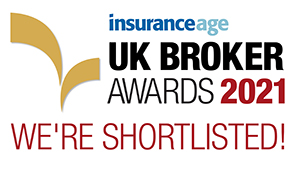- Check your links work – Google will regularly “crawl” your website by following links on your pages. If it hits a link to a page which no longer exists or is incorrect it will effectively reach a dead-end which won’t look great for your website. Regularly check all of the your links on your website by clicking them to check they go to Live pages. If they don’t then correct the error as soon as possible.
- Use the language your customers use – You may have heard the word “Keyword” before. This basically means the word or phrase that you’re hoping to rank highly for in search engines. You may think you know which terms and phrases your customers use when searching for businesses like yours but it is well worth checking this. There are a number of different keyword research tools such as Google’s Keyword Planner which will tell you how many people search for different keywords each month. You can then use these keywords in your page titles and other prominent places on your web pages. This is easily over-done though so we do recommend you get professional advice on this, if possible.
- Is your website Mobile-friendly? In the first half of 2020, over half of web traffic was generated by mobile devices and tablets*. It’s now critical that your website displays and works effectively on mobiles. If it doesn’t this will impact your website’s ability to rank for relevant keywords. You can check how your website performs on mobile devices by using Google’s free Mobile Friendly Test Tool.
- How fast is your website? Google’s aim is to send searchers to the most credible and reliable websites related to the term they’re searching for. Therefore, having a fast loading, technically sound website is key if your website is to rank well. You can check how fast your website loads on mobile and desktop devices using Google’s Pagespeed Insights tool. This will identify any issues which your developer should then be able to assist you with.
- Update your website regularly – When was the last time you updated your website? Having regular new, useful content such as blog posts or company news helps search engines see that your site is an active one and that it hasn’t been abandoned! Aim to add something new each month if you can.
- Keep your site secure – Cyber crime is an ever growing and evolving threat that could strike your business at any time. Ensure your website is regularly backed-up so that if the worst was to happen you could recover your site quickly. It’s also important that your customers data is safely protected on your website. It’s also essential that your website has a valid SSL certificate. You can check you have one of these by going to your website in your internet browser. If a padlock icon appears next to your website address then you have a valid certificate. If not, contact your developer as soon as possible to rectify this.
- Manage your reputation – If people Google your business name you will hopefully appear top of the search results. However, it’s also likely that an information panel containing your business information and online reviews as well as a star rating out of 5 will also appear. This information is largely pulled from Google My Business, Google’s business information and reviews platform. If you haven’t already, make sure you claim your business listing and populate it with up-to-date business information and contact details. Also encourage clients to leave you a Google Review to improve your average star rating which can be the difference between someone choosing you or a competitor. In fact, research has shown that 88% of consumers trust online reviews as much as a personal recommendation**.
Important Notice
Thank you for visiting the SEIB website. Our staff are working remotely but are still able to deal with your enquiries in a timely manner.
Please call 01708 850 000 or email info@seib.co.uk
We appreciate these are difficult times, if you’re an existing customer experiencing financial difficulty as a result of Covid-19, please contact us to discuss your payment options.



